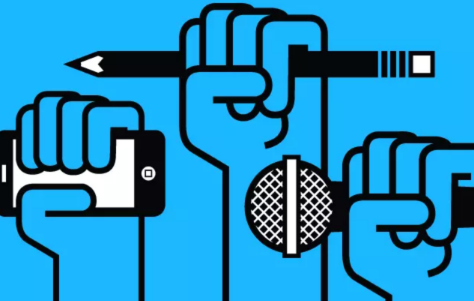‘End Increased Interference, Ensure Dignity for Journalists’: DUJ’s Scathing Letter to MPs

Representational Image
Calling for an end to “increased interference by the government and for a life of dignity for journalists who are facing the worst working conditions in the past decade,” the Delhi Union of Journalists (DUJ), in a statement, has called for an independent Media Commission to ensure fair wages to journalists, demanded that internet shutdowns be stopped and that labour laws be restored for the profession.
“It is our contention that amidst significant challenges, rather than trying to build up India’s ranking in global media freedom indexes, the Government should be trying to understand the problems that afflict the Indian media and take remedial measures to save the Indian media, particularly its journalists,” the statement said.
The DUJ said that at a time when journalists have risked their lives to report during the COVID-19 pandemic and when close to 1,500 scribes have lost their jobs, the “new Labour Codes threaten the very survival of journalism and journalists in the newsprint media while new Rules for digital media threaten its independence and survival.”
Mentioning the FIRs against journalists for reporting on the incidents of violence on Republic Day and the arrests of Dharmender Singh and Mandeep Punia, it said that press credentials were becoming harder to come by “and (are) more difficult to obtain specially in the last five years.”
“The Epidemic Diseases Act, the Disaster Management Act, the Criminal Defamation law, the Sedition law and sections of the IPC and UAPA have all been misused to curb free speech,” it said, adding that FIRs were being filed against journalists “at an alarming pace”, citing the case of Siddique Kappan who was on his way to report on the Hathras tragedy.
The statement mentioned that at a time when job insecurity in the profession was “rampant”, the “Labour Codes virtually demolish the Working Journalists Act, kill the future of Wage Board type Awards and throttle the very concept of wage fixation machinery, even as another Wage Board is overdue for journalists and press workers.”
According to Access Now, India had topped the list of 29 countries that took away access to the internet from its citizens and registered109 shutdowns out of 155 shutdowns across the world. The DUJ said that internet shutdowns have had a “huge impact on news reporting”.
The statement also referred to the Index Monitoring Cell put in place by the Ministry of Information and Broadcasting to improve India’s status in the press freedom rankings, calling the move “ironic”. The country is ranked 142 out of 180 countries in the World Press Freedom Index, 2020.
On the monitoring cell’s report, the DUJ said that “while we welcome the suggestion that the defamation law be decriminalised we do feel that the present Press Council of India cannot be the sole body for giving its consent before the filing of an FIR against the media. Its composition and the stand of the present chairman on various issues like Kashmir journalists are well known.”
“The draft report does not seem anywhere to contextualize the ironic and astonishing rise in attacks on journalists that comes after their being declared an essential service by the nation’s prime minister,” the organisation quoted senior journalist P. Sainath as saying.
It also questioned how the “wealthiest, most cash-rich media houses” could lay off over a thousand scribes at a time when the “Prime Minister declared journalists and media to be an essential service 11 months ago.”
The union said that the government has been a “prisoner of indecision and is acting on behalf of select newspaper managements to allow them to continue with a policy of hire and fire. The contract system has been misused for this purpose. We demand that media owners give an undertaking that they will not misuse the contract system to sack journalists and other employees.”
It demanded that the government penalise media houses that flout the Majithia Wage Board recommendations and “exploit” employees by not paying them enough. “We demand more fast track courts before ominous Labour Codes finish the Award which is indeed tardily implemented,” it said, stressing its support to the labour unions against the Labour Codes.
The DUJ also demanded laws protecting journalists against criminal defamation, the withdrawal of “draconian” sections like sedition and the UAPA and a Media Council and Media Commission as autonomous bodies whose “constitution must be discussed threadbare not only in Parliament but with all stakeholders, primarily journalists’ unions.”
About the new IT rules, the DUJ said it “broadly supported DIGIPUB” which has asked the government to consult stakeholders on the new rules. “The government should withdraw the digital media Rules immediately and Parliament should take a stand on this issue of press freedom,” it said.
“In sum, we appeal to Parliamentarians to save journalism and journalists for tomorrow. We support new and digital forms of journalism, existing with the older forms,” it said.
Get the latest reports & analysis with people's perspective on Protests, movements & deep analytical videos, discussions of the current affairs in your Telegram app. Subscribe to NewsClick's Telegram channel & get Real-Time updates on stories, as they get published on our website.
























